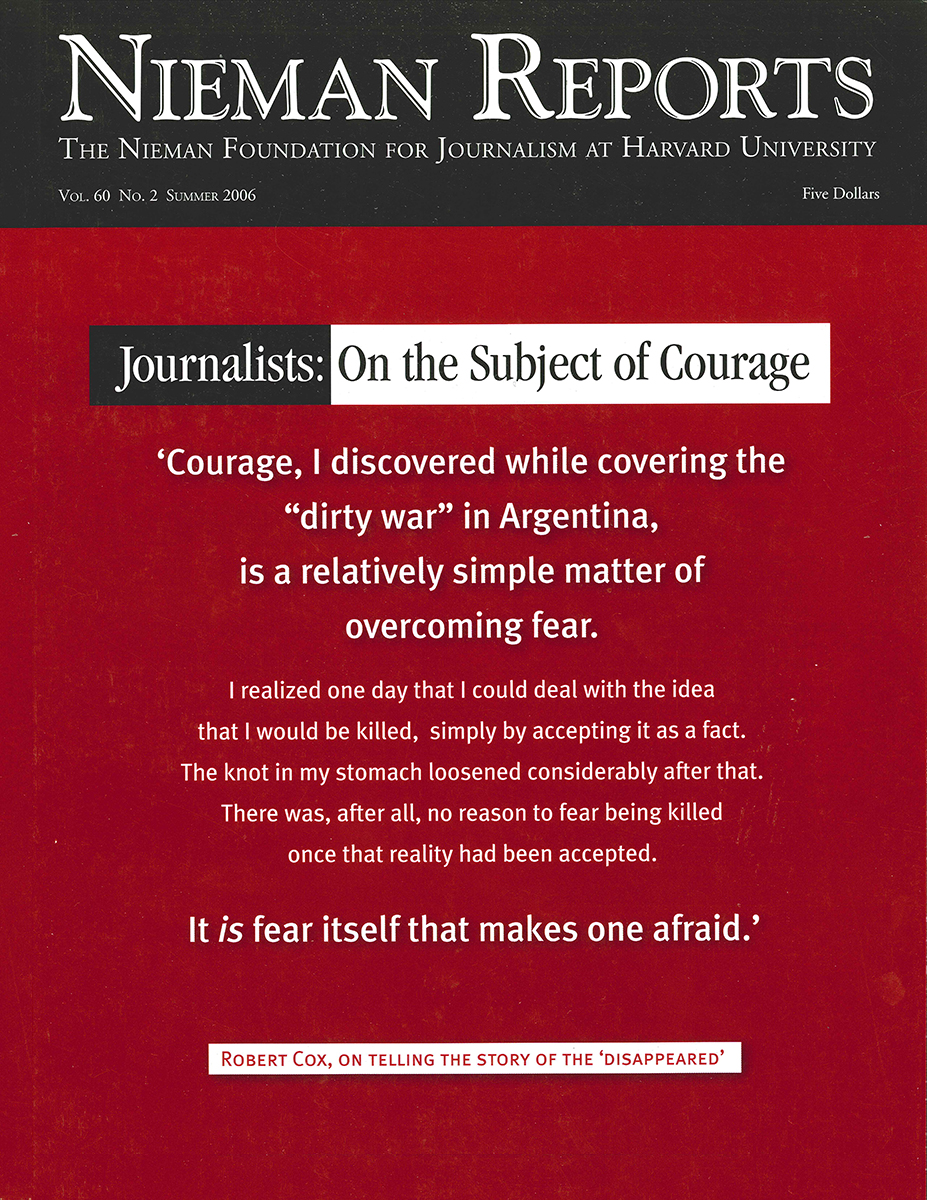In Canada, only a few major media companies exist, with a resulting high concentration of ownership. As a consequence, relationships that develop between media owners and government leaders sometimes impede the flow of information to the public, a situation that often requires moral courage to be shown by journalists, if they are going to do their jobs.
Since his election in January, Canada’s Prime Minister Stephen Harper, who is the leader of the Conservative Party, has attempted to control news coverage of his government in extraordinary ways. This has led to conflict with the Parliamentary Press Gallery (PPG), the association of journalists who are responsible for covering the federal government. In spite of meetings between press gallery officers and the aides in the prime minister’s office, restrictive policies remain in place.
Among these policies is one that requires ministers in Harper’s government to seek approval from the prime minister’s office before meeting with journalists and to have all interview topics and statements cleared with the prime minister’s officials. This is a much more restrictive policy than followed by previous governments. A recent interview with the environment minister was cancelled at the last minute when it was learned that the journalist planned to ask her about the Kyoto Protocol on the limitation of greenhouse gases, an agreement that Canada has signed but done almost nothing to implement. Ministers are only free to speak in glowing language about the government’s top five electoral priorities. Ironically, one of these is improving the accountability of government. Communicating about any other topic is verboten.
Nor are journalists informed when Cabinet meetings are held; this is an attempt to be certain that reporters won’t try to question ministers when they leave the room. Secret Cabinet meetings had not been held for decades. The prime minister has also had his aides decide which journalists can ask him questions at press conferences, as they also try to control the subject of their questions.
The Conservative government’s extreme crackdown is surprising since in its campaign the party promised openness and transparency. But it quickly assumed the label as the most secretive government in Canadians’ memory. Perhaps the most controversial news ban imposed by this government has been coverage of the return of bodies of Canadian soldiers killed in Afghanistan. Many Canadians view this as the prime minister merely following the lead of President Bush’s administration, with its adherence to the policy of a news blackout of the return of bodies of soldiers from Iraq and Afghanistan.
The PPG strongly resists this control, but little they’ve been able to say or do has made much difference. Of particular concern to journalists is the lack of support some owners of Canadian news organizations have given as they’ve tried to contest these policies. An editorial in the National Post, which is the voice of CanWest Global Communications Corporation, Canada’s largest media company, labeled journalists "whiners" for complaining about the ban on coverage of the bodies of soldiers coming home and other secretive policies. In an extraordinary attack on the PPG’s battle against secrecy, CanWest’s national newspaper said: "Get over it guys: the world does not revolve around your need to file 800 words for tomorrow’s edition."
Staying on the good side of this government, regardless of its policies towards journalism and journalists, appears to be a major objective of Canada’s largest media company, even when doing so is clearly not in the public interest. And this means that there are pressures placed on journalists working for the company. If reporters or editors try to work against government secrecy, as journalists should do in the public interest, they are not only viewed as acting against the prime minister but they must act without the support of their publication’s ownership.
This circumstance might not require physical courage of the kind needed in a war zone or when reporting in countries ruled by brutal regimes, but there is no doubt that standing up to both a government and your boss at the same time requires more moral courage than should be required by journalists in a country such as Canada.
Russell Mills, a 2003 Nieman Fellow, is executive dean of the faculty of arts, media and design at Algonquin College in Ottawa, Ontario, Canada. He was fired as publisher of the Ottawa Citizen in 2002 following publication of criticism of former Prime Minister Jean Chretien.


